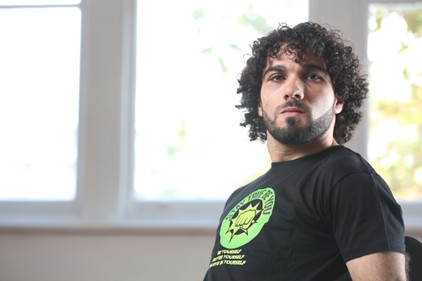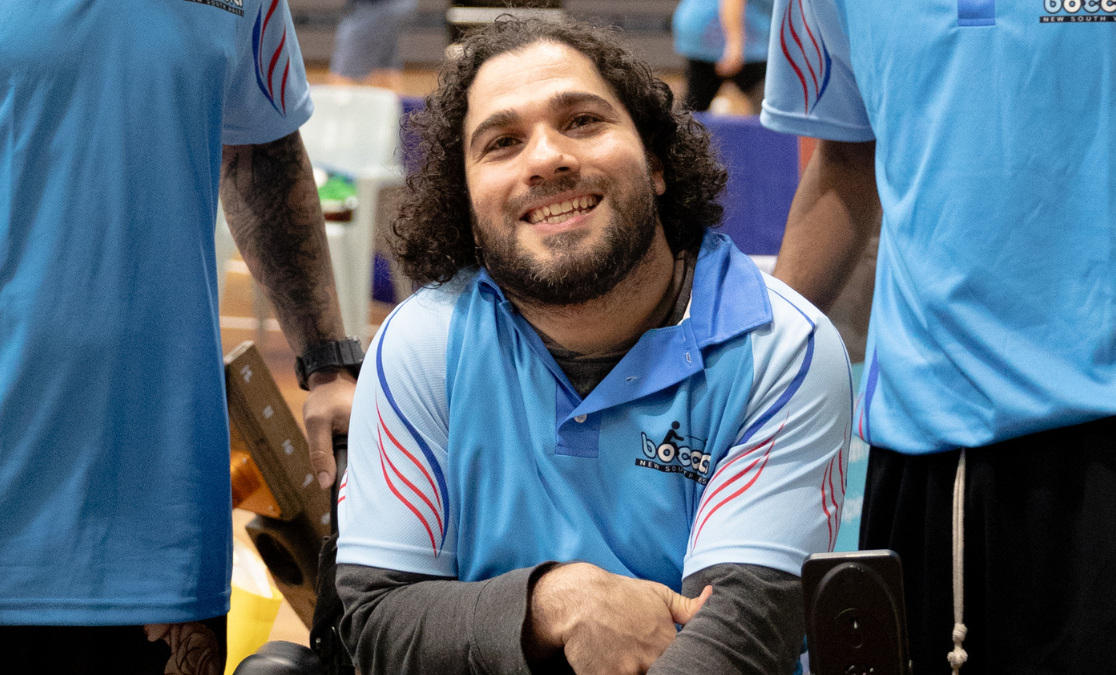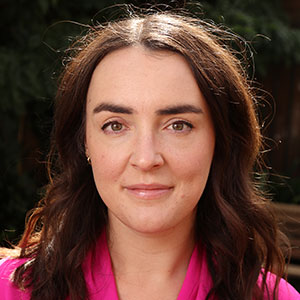Explore future study with ACAP
ACAP University College psychological science student Moustafa Ardati is conducting groundbreaking research on adult cerebral palsy and mental health, addressing a critical research gap while training for Paralympic gold.
There isn’t much Moustafa Ardati can’t, and hasn’t, done.
Formerly a web and graphic designer, Moustie – as he’s known by friends and family – has played competitive sports at an elite level, is training for the Paralympics and does standup comedy in his limited free time. He is an experienced motivational speaker and breakthrough coach, with his website – Stay True Be You – inspiring people every day.
If that wasn’t enough, he is now also completing brand new research into the mental health of adults with the same condition that affects him, cerebral palsy, as part of his studies in the Bachelor of Psychological Science (Honours) at ACAP University College.
It’s a lot for anyone, but Moustie is used to excelling in all his chosen fields.
“I’ve always been the type that the harder something is, or the more people say, ‘Isn’t this too difficult? Aren’t you putting too much pressure on yourself?’ The more I want to do it,” he laughs.
“If I’m not pushing myself or pushing the boundaries, I’m not really reaching my potential.”
Moustie has experienced discrimination because of his physical disability in the past, missing out on jobs and struggling to find a school environment in high school that met his needs, but his work as a counsellor through his ACAP studies has confirmed what he knew all along.
“What I learned from my work placement as a counsellor is that my disability is actually the biggest advantage I could hope for,” he said.
“It helped my clients because they saw that I could understand their struggles on a personal level, and they opened up to me like no one else. I’m very fortunate that I can use what I’ve got with this disability to my advantage to break the barriers and stigma.
"I had some people who had been addicted for 10 years and they got clean under my watch and started working and studying. To help people like that - it makes you feel like you're born to be in that industry, to help people change their life."
Moustie came to ACAP after previously completing study at TAFE and UTS. He chose ACAP to pursue first a Bachelor of Counselling and Psychology and now his honours in Psychological Science, with the aim of eventually completing a doctorate.
“The reason I went to ACAP is because there was a stronger focus on psychology and counselling and I guess I really liked that idea of going somewhere where their primary focus is what I want to learn,” he said.
"I love ACAP, I always have, I love the way they teach. I feel like it's really practical but also tests you in a way that you're not going to be tested at other universities. They really test your level of resilience, your ability to figure things out on your own, while also providing support."

Breaking mental health barrier
Now Moustie is turning his attention to research.
For his honours thesis, Moustie is undertaking an ambitious survey of adults with cerebral palsy, seeking to better understand their comorbidities for anxiety and depression – an area he says has almost no research.
“I was born with cerebral palsy and of all the research on the condition I found (in regard to mental health), only one was done on adults, everything else was either on the parents, the carers or the children,” he said. “I saw a huge gap that I wanted to cover.”
Moustie has put together an academically rigorous survey for adults with cerebral palsy, focusing on the relationship between emotional regulation, emotional intelligence, and post traumatic growth, and he hopes his findings could be life changing.
The survey can be found here: https://acap.au1.qualtrics.com/jfe/form/SV_7PMbWtjU28YWMpU
“My hope is not only to help people with cerebral palsy with intervention, but also to help the general population by finding and maybe developing new interventions that help individuals increase their emotional regulation and intelligence, thereby limiting depression and anxiety and other mood disorders,” he said.
He is hoping to gather data from at least 200 survey respondents for his honours thesis in the first instance but then plans to leave the survey open. He wants to gather as much data as possible and eventually expand the research to publish academically.

Paralympic dream
In his spare time, Moustie is training for one of his biggest dreams; competing at the Paralympics.
After previously playing wheelchair hockey and power football (soccer) at the highest level, Moustie has switched lanes into boccia, a ground-based balls game, where he has seen rapid success.
Next stop? Paralympic gold he hopes.
Jumping barriers has become second nature to Moustie, and he wants to see more people do the same.
“My goal is to inspire, not just people with cerebral palsy or disabilities, but everyone out there to show them that anything is possible,” he said.


